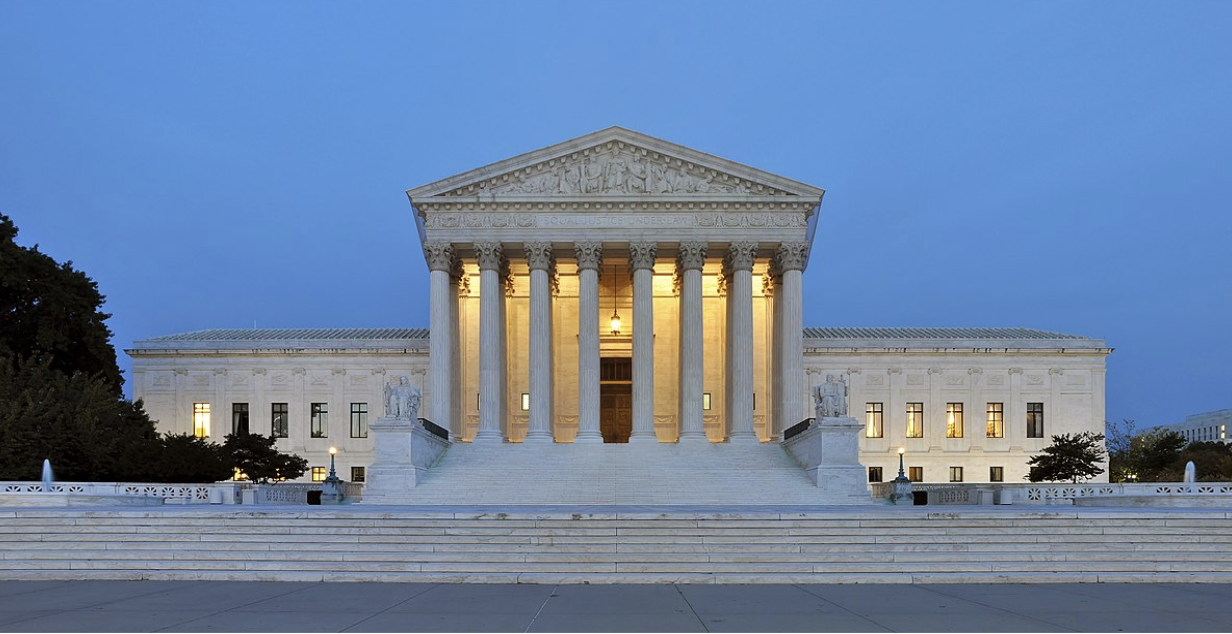Photo via Wikipedia
***
Originalism is a legal theory that the U.S. Constitution should be interpreted in its original meaning only. Justice Antonin Scalia, the most famous originalist who coined the phrase and voraciously defended it, is famous for saying, “It isn’t a living document! It’s dead. Dead, dead, dead!” Justice Scalia was known for his distinctive choice of words and relentless defense of his theories, which popularized them and helped them gain significant traction. Most notably, Justice Amy Coney Barrett, who joined the Supreme Court in 2020 and clerked for Scalia, has spoken on her belief and adherence to originalism, as well as her overall admiration for Scalia.
Originalism has gained much more momentum after Scalia, who joined the Supreme court in 1986. Many more “conservative” judges claim to be originalists, overturning past rulings, like the landmark decisions of Roe v. Wade (1973) and the Regents of the University of California v. Bakke (1978) decision. Many conservatives had been rallying to get these decisions overturned. Organizations like the Natural Right To Life donated to political campaigns in hopes of the candidate supporting their cause. Conservative justices claim that Roe was incorrect and baseless as the Constitution does not mention anything about abortion. Originalists argue that the Constitution’s meaning was fixed at the time of its ratification and that allowing modern interpretation draws a risk of undermining the rule of law. The Supreme Court is the only court outlined in the Constitution, with the Constitution stating in Article III Section 1 that the federal government has the authority to create more courts. The court also has the power of judicial review, which originated with Marbury v. Madison (1803), allowing it to review cases and potentially issue different rulings than the lower courts. Judicial review is the very precedent that the Supreme Court uses so they could hear cases. When the Supreme Court makes a ruling they overrule any lower courts decision on the matter and their decision is final, unless they hear another case on the same subject matter. The Supreme Court used judicial review as a tool to kill the Roe and Bakke decisions.
Yet, I would argue that many Justices are not interpreting the Constitution as intended by the Founding Fathers, but rather using the Constitution as a tool to progress and justify their own personal and political agendas. The Constitution was a living document to those at the Constitutional Convention. They made this very clear in Article V, by explicitly allowing and creating pathways for the constitution to be edited, as well as providing for additions to the document.
The Founding Fathers envisioned the United States as a nation where democratic ideals would thrive. They would likely wince at the thought that their words were being interpreted in this way. Originalism is a theory that makes sense in many contexts. It just does not make sense in regard to the Constitution. The Constitution’s meaning has evolved over time and needs more than a narrow or simplistic reading. The founding fathers thought out all aspects of our government, and were fully conscious of its imperfections, making it clear that the Constitution was meant to evolve with the nation.
Thomas Jefferson, a founding father and third president of the United States, proposed that the Constitution should expire every 19 years and be revised and rewritten. He argued that this periodic renewal would ensure the government remained responsive to the will of the people and avoided outdated laws that were no longer applicable or relevant. The founding fathers were very wary of the government’s role as a whole and petrified that their new country would become a tyranny similar to the English government they fought against.
The Constitution was created to outline the structure of the new government and country. Originalism diminishes the value and purpose of the Constitution by treating it as a rigid rather than adaptable document. Its value lies in its flexibility and ability to grow with the people it serves. The Constitution is not solely a document for the Justices; it belongs to all Americans, a living document of profound magnitude that admits no single way of understanding.
***
This article was edited by Peter Leyba and Ryan Scriven.
